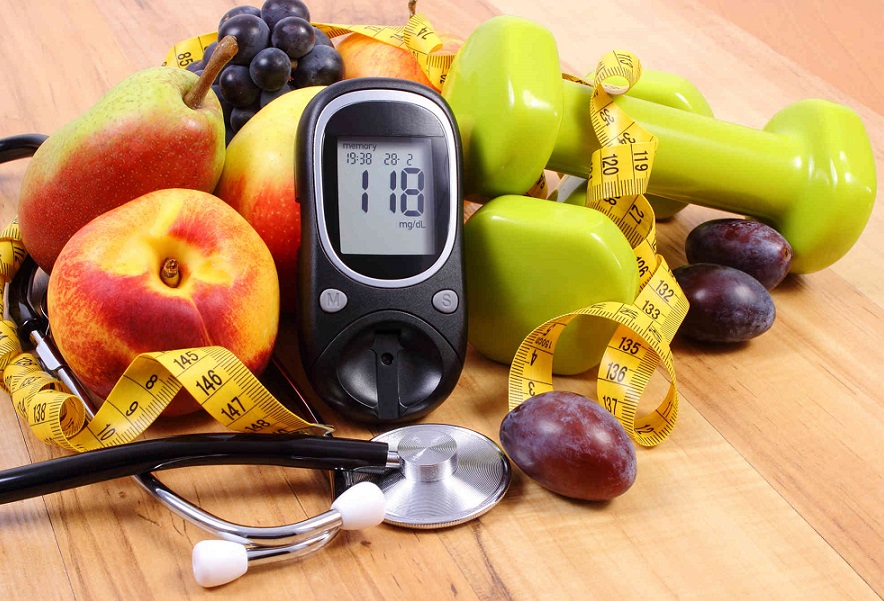What is Type 2 Diabetes?
Type 2 diabetes is a chronic disease that affects the way the body metabolizes sugar. It is characterized by a progressive loss of sensitivity to insulin, the pancreatic hormone that regulates blood sugar levels. In the early stages of type 2 diabetes, the body produces more insulin to try to overcome reduced insulin sensitivity; however, in the long run, the pancreas can’t produce enough insulin to maintain blood sugar levels, resulting in high blood sugar, or hyperglycemia. Hyperglycemia induces oxidative stress which, in turn, contributes to many of the complications of type 2 diabetes, such as kidney, nerve, retinal, and vascular damage.
Prevention & Management
- Prevention is possible by maintaining healthy habits.
- Healthy diet: fruits, vegetables, and whole grains. These are low-fat, high-fiber foods. Reducing sweets, refined carbohydrates, and animal products. Low-glycemic index foods (foods that keep blood sugar more stable) are also for those with type 2 diabetes.
- Maintaining a healthy Body Mass Index, 18-25
- Increasing physical activity is a key element in controlling weight and reducing the likelihood of developing Type 2 diabetes. Physical activity also helps a person maintain better posture and balance, stronger muscles and bones, more energy, reduced stress and continued independent living in later life.
- Diabetes and high blood pressure are often found together. Up to three-quarters of people with undiagnosed diabetes have high blood pressure. Studies show that good control of blood pressure, cholesterol and glucose can substantially reduce the risk of someone developing complications and slow their progression.

Complications
- People with Type 2 diabetes are at increased risk of heart disease, according to the Centers for Disease Control & Prevention.
- People with Type 2 diabetes are 1.5 times more likely to have a stroke than people who don’t have the condition, according to the American Diabetes Association.
- Kidney disease is another complication that can affect people with Type 2 diabetes. This is because of the connection between blood sugar, also called blood glucose, and the kidneys. When blood glucose levels are too high, the kidneys struggle to filter blood and the blood vessels within the kidneys are damaged.
- According to the American Diabetes Association, 2 out of 3 people with Type 2 diabetes report either having high blood pressure or taking medication to lower it. If left untreated, high blood pressure increases the risk of heart attack, stroke, vision problems, and kidney disease.
- People with Type 2 diabetes have a higher risk of developing eye problems like glaucoma and cataracts.
- Type 2 diabetes can increase your risk of a number of complications that affect the feet. Most diabetes-related foot issues are caused by nerve damage, sometimes referred to as neuropathy
Management
In contrast to conventional medicine, the Functional Medicine approach emphasizes prevention and treatment through diet and lifestyle changes and sometimes along with medication to help your body.How we can Help Our Diabetes Program has been tailored to address the needs of a person with Type 2 Diabetes and to manage glucose levels more optimally, reduce medication to treat diabetes, or reverse this condition all together. This depends on your level of commitment. We typically do blood testing monthly and meet to closely monitor the changes you have implemented in your lifestyle and diet and whether your changes have resulted in the desired goals.

